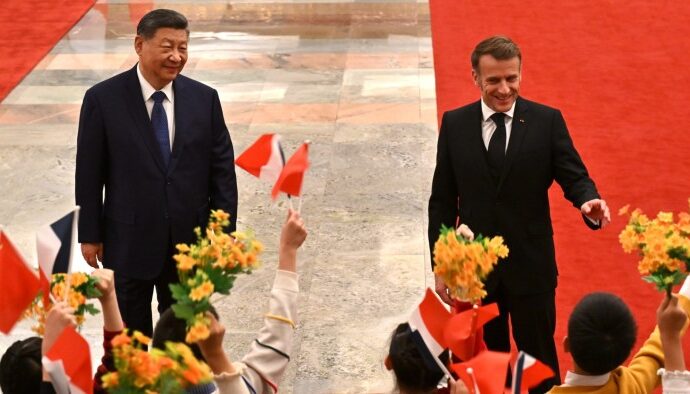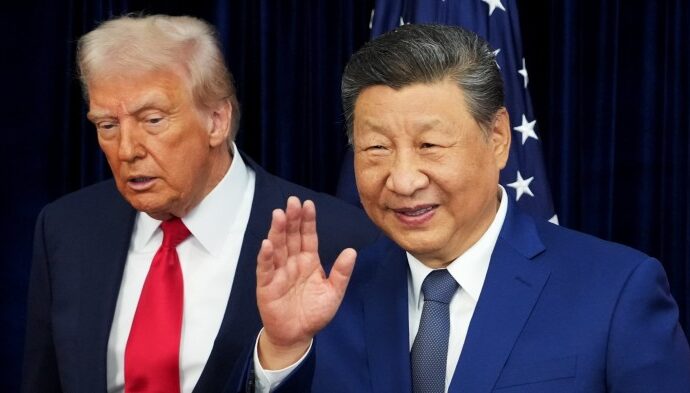China plans to exclude Tibetan as a core subject from the national college entrance exam for the majority of students in the autonomous region, a senior official has said, raising concerns over the future of the language.
Gama Cedain, chair of the Tibet Autonomous Region, told a press briefing this week that the change was part of reforms to the national examination and would improve Tibetans’ career prospects.
“Tibet, like other provinces and regions,” would have “unified exam subjects”, he said, such as Chinese and mathematics, and foreign languages including English, Russian, Japanese, French, German and Spanish. But Tibetan will no longer be a core subject in the exam.
“This helps students of all ethnic groups to enjoy fairer access to high-quality education, enhances minority students’ ability to learn and improves their overall scientific and cultural literacy,” he said of the changes.
The exclusion will fuel accusations from the US and Tibetans abroad that China is expanding a “Sinicisation” campaign in order to bring religious authorities in the region under the control of the Communist party and suppressing aspects of its culture — allegations fiercely denied by Beijing.
Gama Cedain did not give a timeline for the implementation of the change, saying only that Tibet began education reforms in 2024. But officials in six Tibetan prefectures said it would come into effect next year.
Officials affiliated with the Tibetan government-in-exile in Dharamshala, India, who have been closely following the changes, accused China of seeking to repress the use of Tibetan language in the region.
“Once you no longer have the Tibetan language in your entry exam, it no longer is a legal means of communication or useful to seek a profession or get a job,” said Dawa Tsering, director of Tibet Policy Institute in Dharamshala, which is affiliated with the Tibetan government-in-exile.
Every year, high school seniors across China take the gruelling, multi-day college entrance exam, known as the gaokao. Aside from Chinese, maths and foreign languages, students choose from a range of subjects including politics, history, geography, physics, chemistry and biology, all of which are conducted in Mandarin.
In some regions, ethnic minority students are permitted to take a subject test in their native language.
But from 2026, only Tibetan students applying for specialised areas of study that require the Tibetan language, such as Tibetan literature, will be able to take a Tibetan language subject test, comprising a small fraction of Tibetan students, according to local officials.
“Tibetan language teaching programmes in general universities face issues such as relatively limited enrolment quotas for Tibetan language and literature and Tibetan medicine and pharmacology, narrow pathways for further education, significant limitations in subject specialities and a narrow job market,” Gama Cedain told the briefing.
He said Tibetan would remain a core subject in primary and secondary schools in the region and other areas with significant Tibetan populations.
Tsering of the Tibet Policy Institute accused the government of preparing to “completely eradicate” use of Tibetan language “for education, business, travel and office work”.
China’s education ministry and the government of the Tibet Autonomous Region did not respond to requests for comment.
Chinese leader Xi Jinping has escalated pressure on the country’s ethnic minorities in recent years to assimilate into Han-dominated society.
“The Chinese government attaches great importance to protecting and developing Tibet’s excellent traditional culture and promoting the development of prosperity of Tibetan cultural undertakings, fully respecting the customs and habits of all ethnic groups,” the foreign ministry said in response to a request for comment.
In Inner Mongolia, the government has curtailed classroom instruction in the Mongolian language, a move that sparked protests in 2020.
In far western Xinjiang, authorities have implemented strict curbs on the religious practices, education and culture of Uyghurs, a mostly Muslim, Turkic-language speaking community that is also subject to surveillance and limits on travel following a period of mass detention.
The changes to Tibet’s exam were conveyed verbally to teachers and students in recent months, according to local officials.
“The students only found out from teachers or school internal documents,” one Tibetan now based outside the region said in July.
Some Tibetan language teachers have also received notices from their schools that they may be transferred to non-Tibetan teaching positions next year, according to people familiar with the matter outside the region.
One Tibetan student outside the region said there would be “no incentive to learn Tibetan” if the change to the gaokao was carried out.
“This [Tibetan language] reform has been like boiling a frog in water by slowly increasing the temperature,” they said.


